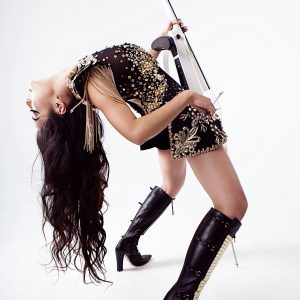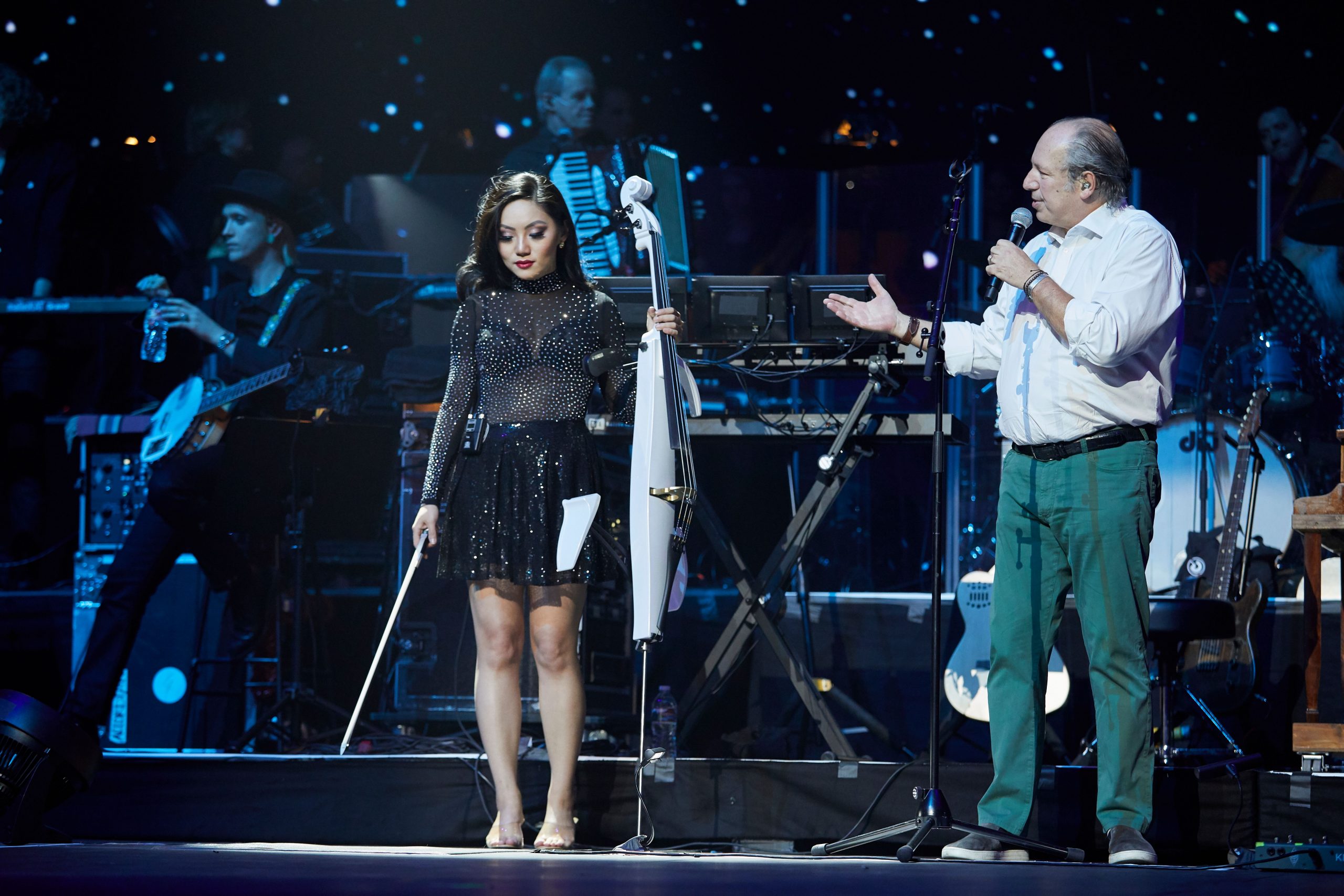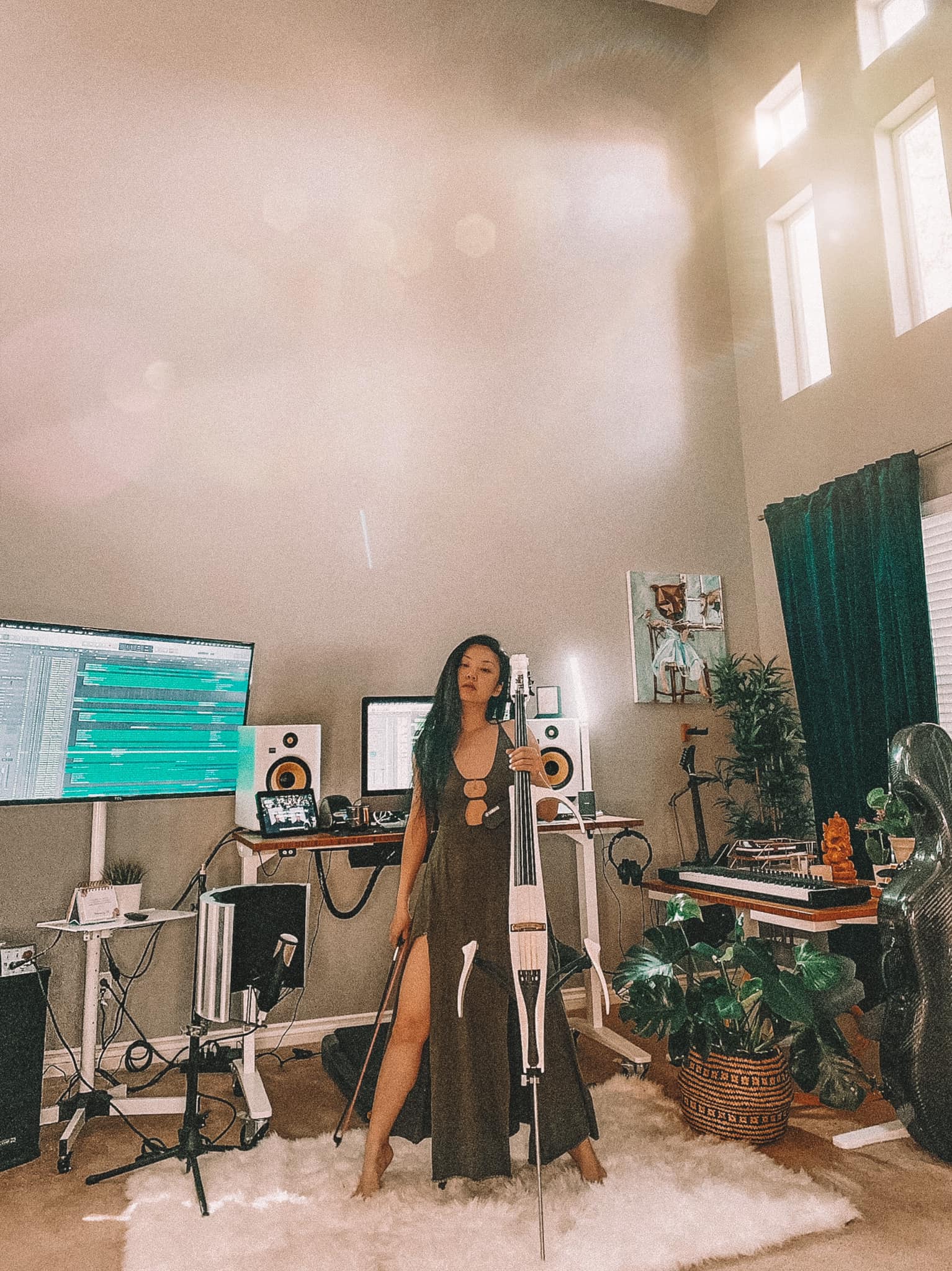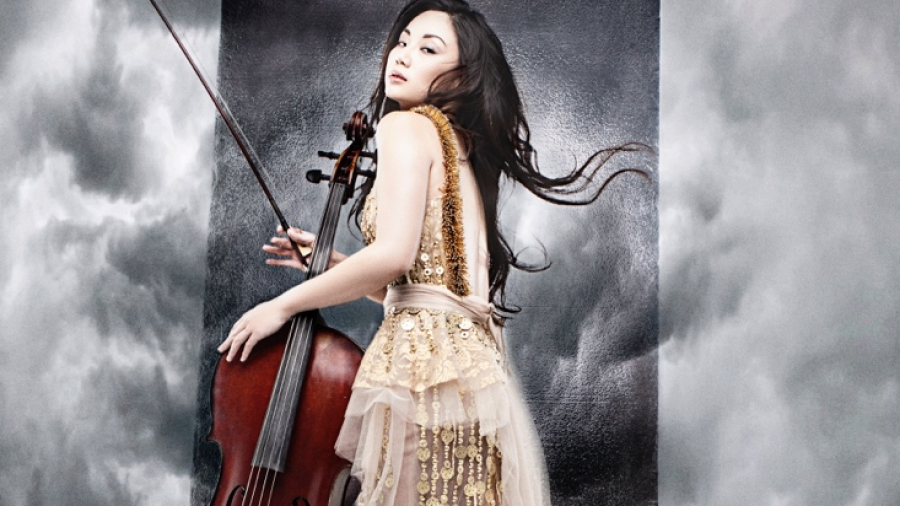Written by Jonah Azurin
[Editor’s Note: This article was updated on Saturday, March 13, 2021]
Professional music careers are tough. Notorious for the long practice hours combined with rare monetary rewards, musicians need thick skin to endure this calling. But this didn’t stop Tina Guo. Although groomed to be a classical cellist growing up, she forged her own path and achieved international acclaim as an electric cellist, composer, and entrepreneur. Between practicing eight hours a day, building her brand, composing music, and making time for her dogs, it’s no surprise that Tina has created a highly respected career. Her expressive and spirited music has led to accolades such as a Grammy Nomination for Best New Age Album and Female Artist of the Year at the 2018 Classic BRIT Awards. You can hear her signature sound on Acoustic Cello, Electric Cello, and Erhu on hundreds of Blockbuster Film, Television, Video Games, and Commercial Albums. I chatted with Tina about her unfaltering journey in the music industry that led to her distinguished career.
I read that you started playing piano when you were young. What influenced the change to cello as a musician?
I started with the piano and both my parents are musicians. My parents wanted me to learn music, but I think basically every child in China plays piano. My dad plays the cello and my mom plays the violin and to be honest, playing the cello wasn’t really a personal choice; I was pretty much forced into playing. I began my studies on the violin but switched over to the cello because I sucked at the violin and honestly if my parents hadn’t forced me to play an instrument, I probably wouldn’t have done it. I practiced so much growing up – usually at least eight hours a day. I’m grateful for that forced training now that I’m older but I was definitely an angsty, frustrated child! By the time I was 18 and went to college, playing the cello was the only thing I really knew how to do and I was offered a scholarship for classical cello performance at The University of Southern California (USC), so that’s where I went.

What made you switch from playing classical music to metal?
I grew up only listening to classical music and I wasn’t allowed to listen to much of anything else. When someone tells you you can’t do something, usually you want it even more so that’s how it was for me and I feel like it drew me to things and music that are dark, forbidden, odd, and mysterious. I consider myself to be a person that’s drawn to things that are hyper-emotional and with intense energy and the very first time I heard heavier music, I was in college at USC. I was a classical musician and metal is so dark and angry. It reflected a lot of my feelings growing up and I was so drawn to it. During my time in college, there were so many other resources and different instruments so I was exposed to so many more sounds. I experimented a lot. I love classical music but for me, music has to be emotive, deep and it makes you feel something. Even meditative music is great. I saved up and purchased my first electric cello and began obsessively experimenting with effects and also how to play standing up during this time.
Did you always want to make music for film or did you want to stick to concert performances?
I think life is always an adventure so you have to remain open to all the different possibilities. The first time I was a part of a “soundtrack” was with the student composers of USC. It didn’t pay much but it was a great experience. I didn’t even think that music scores were a thing because before, when I watched movies, I never thought about where the music came from. I performed at a recital with the student composers but it wasn’t until years later that I posted my “Queen Bee” music video on YouTube that launched the next part of my career. That video was supposed to be my last “hurrah” because I was struggling to pay rent and was considering just dropping this entire career as a metal cellist. All the money that I saved I put into that video because I really wanted to “go out with a bang.” It took six months to organize and it was really just me being artistically free and expressing my deepest musical desires. A week after the video came out, I was unexpectedly and very luckily contacted by various film music composers, including Hans Zimmer. Our mutual friend Ann-Marie Calhoun Einziger showed him the video, and I really feel like this music video was a turning point in understanding and manifesting my artistic identity.

Tina Guo with composer Hans Zimmer
What is it like working with Hans Zimmer?
It’s amazing and I’m so excited when we record something for a project. I never stopped being excited. Hans Zimmer is amazing and I owe so much of my career to him. Touring with him, collaborating with him, and seeing him work has been incredible. He’s very trusting of the people he works with and very open to having the musicians experiment and truly collaborating. When he brings me on film projects, it’s so fun and a huge inspiration.
Speaking of your work in films, what was your experience like working on the Wonder Woman soundtrack?
It’s been life changing. Working on Wonder Woman (2017) was an incredible experience and I feel so lucky to [have been] a part of it. For the Wonder Woman 1984 (2020) soundtrack, we recorded most of that prior to COVID. The release party was online because of the pandemic and I participated remotely. There wasn’t as much Electric Cello featured on this score but I did also record acoustic cello for this more orchestral, mature soundtrack.
If you weren’t a musician, what would you be doing?
Probably something in the business or entrepreneurial field. I’m self-managed and I handle my own contracts and negotiations. I like that part of my career; I love spreadsheets and organizing. Half of my career is full of so much passion and energy and the other part of my career is structured. Some people think it’s boring to update spreadsheets and keep track of everything but I find it really fun.

What advice would you give to musicians during this time?
I have consultations with musicians and I work with them on branding and marketing. I always tell them to continuously put out content into the world- I really think all musicians should do this. I understand that it’s exhausting but you can’t think of it that way because if you’re an artist, we share our work. It’s an amazing time right now because we have all these platforms to share and it’s easier to put your content out there so we have to take advantage of that. Find out what you’re really passionate about. For me, it was metal. Don’t be afraid to share and don’t wait until it’s perfect because I feel like a lot of people want things to be very precise but it’s part of the journey. It’s okay not to have perfect content because you’re supposed to be growing. Experiment and explore within yourself and your career because the music business is a business. Even if you are super talented, building your brand is also equally important. If you’re completely new to music and want to join this industry, keep being excited about things and share your passion with everyone. Even if your work is not good, use that as motivation. You have to actually do it. If you say you want to be a musician, you better be posting and showing your work if you want to make it in the industry. You have to have a really thick hide if you want to be in this business but with that, you also have to have a lot of grit, passion, and endurance. Keep going.
To follow Tina Guo and her journey, check out TinaGuo.com and follow her on YouTube, Instagram, Facebook, and Twitter for news and updates.

